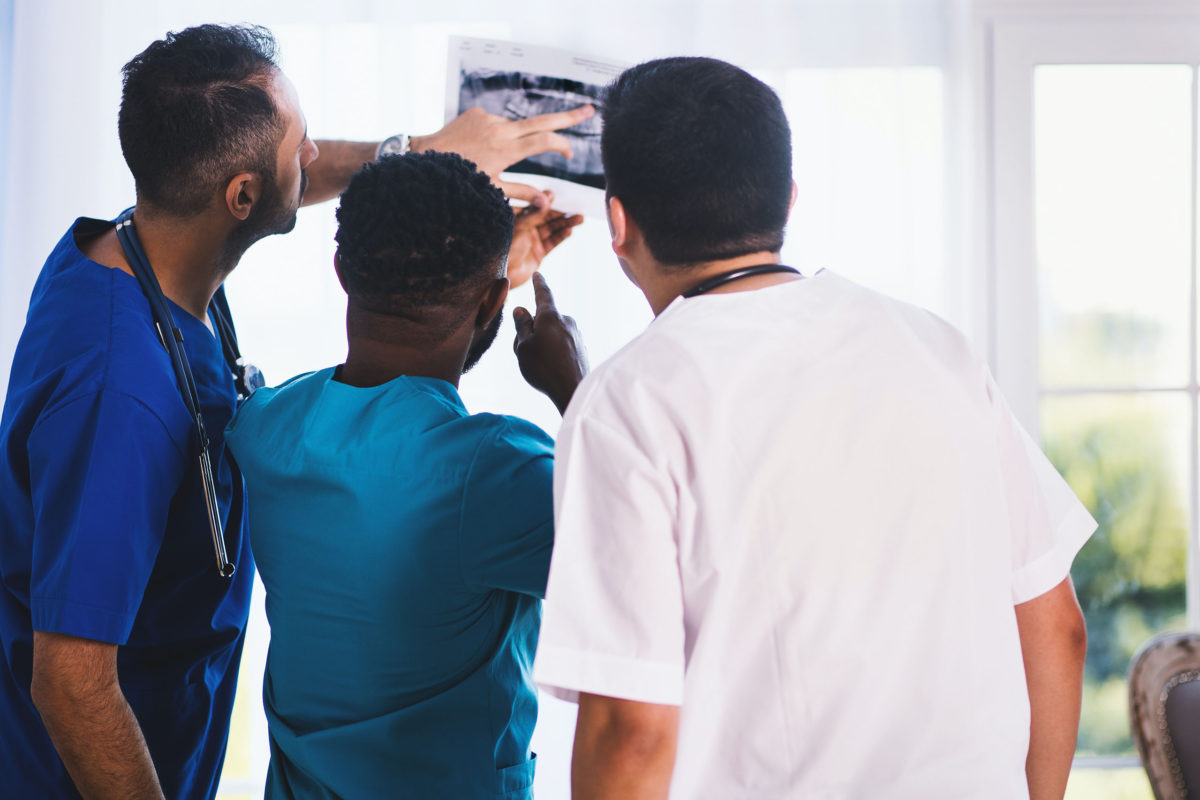Transforming Data Through Healthcare: Bizzell’s Analytic Expertise
By Editorial Staff
In the ever-evolving landscape of healthcare, data analytics have a profound impact on transformative and patient-centric care. As we navigate the complexities of modern healthcare, data analytics revolutionize the way we understand, administer, and improve healthcare services.
Data analytics allow healthcare agencies to make informed decisions about ways to revolutionize their approaches to healthcare. Organizations and agencies in the healthcare sector are at the helm of change, steering us to unprecedented advancements. Enhancing healthcare quality can occur through advancing analytic methodologies. Analyzing vast datasets allows organizations such as Bizzell to extract trends to be implemented and applied[1]The use of Big Data Analytics in healthcare https://www.ncbi.nlm.nih.gov/pmc/articles/PMC8733917/. Many types of analytics are utilized in developing strategies in the healthcare industry. An example of this can be found in Bizzell’s support of heart disease and stroke prevention. Bizzell performs GIS analyses and produces maps that support the priorities of the Division for Heart Disease and Stroke Prevention. Providing statistical support, utilizing databases relating to heart disease and stroke prevention outcomes and cardiovascular disease risk factors, we can conduct statistical analyses for agency members. We use this data to document the burden of heart disease and stroke and the reach of existing programs and policies that aim to increase quality of life.
There are other types of analytics used to develop healthcare strategies. These include predictive analytics, prescriptive analytics, and descriptive analytics. Predictive analytics include anticipating patient outcomes and disease patterns to optimize prevention. This would also include investigating staffing models and analyzing equipment utilization for appropriate resource distribution. Prescriptive analytics focuses more on treatment and historical data for patients, while descriptive analytics involves summarizing and interpreting historical data to find trends and patterns. Utilizing the complete spectrum of analytic tools can help redefine what we think we know about patient care and allow the opportunity to innovate modern technology to aid health navigation and enhance the overall patient experience.
Using data as a framework for technological advancement is also crucial to healthcare evolution. Programs such as machine learning algorithms and natural language processing such as the Natural Language Toolkit (NLTK), can help to develop personal treatment plans and extract insight from clinical notes. Remote patient monitoring allows providers to monitor the patients’ progress in real-time through wearable devices. Data analytics are utilized broadly throughout the healthcare system, from tech innovation to population health management. It also streamlines processes such as ordering medical supplies and inventory management.
At its core, data is a tool to be used for medical evolution, ushering in a wave of precision that has never been seen before. Using data to enhance personalized patient care, and tailoring treatments for environmental, medical, lifestyle, and genetic factors has never been easier than it is today.
Another example of this is our national work around vaccination rates. Bizzell supported efforts designed to increase vaccination rates for routinely recommended vaccines given to pregnant women, children, and adolescents. Our target was 14 metropolitan service areas across the U.S. with high numbers of non-medical exemptions in their kindergarten population. This was accomplished by enhancing the immunization culture in OB/GYN, family practices providing prenatal healthcare, and childbirth classes. We developed and disseminated educational materials to over 100 OB/GYN sites and childbirth education professionals. Bizzell staff worked with OB/GYN sites to modify workflows, implement quality improvement, and collect data throughout the project to evaluate implementation.
At Bizzell, our team of public health professionals, scientists, and researchers have extensive experience in sustainability and capacity building, program management, quality assurance and improvement, network development, and growth in healthcare settings. We use innovative algorithms and programs such as BigML, SAS (Statistical Analysis Software), TableauR, and Excel. Our expertise includes working with vulnerable populations and racially and culturally diverse audiences on several public health issues. We have experience successfully reaching and training providers who serve vulnerable populations, understand the clinical realities facing programs serving vulnerable populations, and can create compelling products that engage our various audiences.
Our commitment to excellence in the healthcare sector extends beyond patient care to the very administrative processes that support healthcare systems. The crux of Bizzell’s analytical impact lies in its positive influence on patient outcomes. In the ever-evolving landscape of healthcare administration, organizations embracing data analytics find themselves equipped with powerful tools to navigate challenges, enhance efficiency, and pave the way for a more streamlined and effective healthcare ecosystem that patients deserve.




